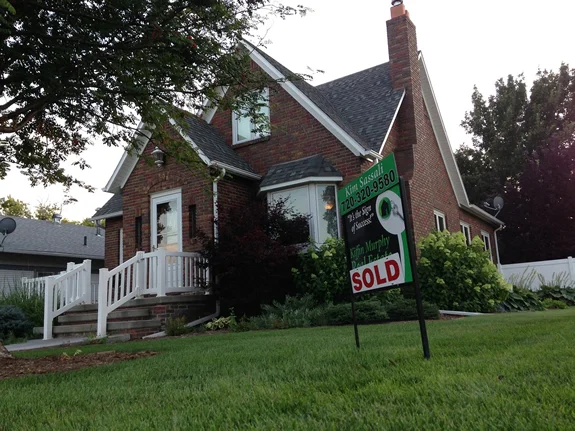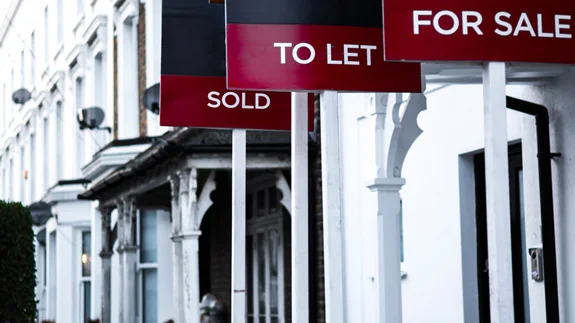Six Out of Ten Brits Hit the High Street as Lockdown Measures Eased
The gradual easing of lockdown restrictions is set to trigger a major spike in consumer spending, which is likely to help jump-start the British economy in the run-up to the summer. A report published this week by Deloitte found that despite the UK’s widespread adoption of online shopping, the number-one priority for most leisure-seekers right now is “going to a shop”.
Meanwhile, research from the EY Item Club suggests that the UK economy will experience its fastest growth since contemporary records began over the course of this year, having “proven to be more resilient than seemed possible” in the wake of the COVID-19 crisis.
EY Item Club recently adjusted its economic growth forecast for 2021 from 5% to 6.8%, suggesting the fastest growth ever officially recorded by the Office for National Statistics.
A return of consumer confidence
GDP plummeted by an all-time record of 9.9% last year, with economic activity having ground to a halt for the vast majority of consumers, businesses, and government offices. Following the worst year on record (according to ONS figures), analysts now believe that the economy will bounce back to pre-COVID levels before the end of Q2, three months earlier than expected.
Despite the economic uncertainty that has plagued almost every UK household throughout the pandemic, research from Deloitte suggests that consumer confidence is growing at its fastest rate in over a decade. A survey conducted on 3,000 adults last month found that at least 60% of adults planned trips to shops as soon as the lockdown restrictions eased.
“The UK is primed for a sharp snapback in consumer activity,” said Ian Stewart, chief economist at Deloitte.
“High levels of saving, the successful vaccination rollout, and the easing of the lockdown set the stage for a surge in spending over the coming months.”
Unemployment forecasts for the year were also significantly stepped down by EY Item Club’s economists; the previous 7% prediction was revised down to a new 5.8% by the end of the year.
“While restrictions have caused disruption, lessons learned over the last 12 months have helped minimise the economic impact,” commented EY’s chief economic adviser, Howard Archer.
He went on to predict that the UK economy will “emerge from the pandemic with much less long-term ‘scarring’ than was originally envisaged and looks set for a strong recovery over the rest of the year and beyond.”
Shoppers hit the high street
Non-essential retail establishments were permitted to welcome customers once again on April 12 in England and Wales. Scotland’s High Street was back in business as of April 26, while shoppers in Northern Ireland were able to visit stores once again as of April 30.
How Coronavirus Has Radically Changed the Priorities of Homebuyers
COVID-19 (and three consecutive national lockdowns) have had a major impact on the lives of every person in the United Kingdom. In particular, real estate market activity has illustrated how thousands of movers and first-time buyers have completely changed their priorities with regard to preferred property types and locations.
According to the latest figures from Rightmove, London has been overtaken by Cornwall for the first time as the UK’s most desirable location for residential properties. Devon has also been propelled in the rankings to third, while Dorset now sits in 10th position after previously ranking 20th.
The findings come as no surprise to the vast majority of UK estate agents, who throughout the pandemic noted a major spike in interest in rural homes, countryside properties, and larger residential dwellings with gardens.
Interest in city centre flats and urban homes with convenient transport connections has been diminishing throughout the COVID-19 crisis as the UK gets used to a new era of working from home and spending more time than ever indoors.
A larger home is a priority for buyers
The figures released by Rightmove suggest that sales of larger homes are accelerating significantly across the country, resulting in a major shortage in inventory in some locations.
For example, five-bedroom detached home sales have increased by as much as 38% over the past year, compared to the 15% increase in sales volumes for four-bedroom flats. Five-bedroom and four-bedroom bungalows have also skyrocketed in popularity, achieving 22% and 20% growth, respectively.
Meanwhile, private renters are likewise setting their sights on entirely different rental properties, predominantly away from busy urban centres. Two-bedroom and one-bedroom flats were the most sought-after rental property types in February last year; this year, it is two-bedroom semi-detached and detached houses that have topped the rankings.
“More space has always been the most common reason for people moving home, but the evolution for many, from balancing their laptop on the end of a bed last March to making an office a permanent addition to a home, has led to a need for even bigger homes than before,” commented Rightmove’s director of property data, Tim Bannister.
Estate agents expect a gradual return to normalcy
The lingering effects of the COVID-19 pandemic could result in a permanent or semi-permanent alteration to the priorities of buyers and movers across the United Kingdom; however, many estate agents believe that the current shift in interest will gradually wane, ultimately paving the way for a slow return to normality.
This is attributed to the fact that record demand for certain property types in desirable areas of the country is already resulting in major property price increases. Average house prices in regions once considered less desirable than their central urban counterparts are predicted to skyrocket, effectively pricing many movers out. At this point, it is inevitable that many will once again have no choice but to set their sights on more affordable urban dwellings, at least partially reversing the mass exodus away from central city living.
UK House Prices Continue to Climb as Stamp Duty Deadline Looms
Since it was announced, the March 31 stamp duty holiday in England has been predicted to result in a slow but steady decline in average property values. Following an initial rush of interest, the number of prospective buyers looking to purchase homes prior to the deadline has gradually diminished over recent weeks.
Nevertheless, new data from Rightmove suggests that not only is property market activity still relatively high, but that average house prices continued to rise throughout January and the beginning of February. Specifically, average property values increased by approximately 0.5% over the course of a month, following three months of consecutive losses.
The data published by Rightmove tracked average property values from January 10 to February 6.
Property purchase intent remains high
Compared to the same time last year, Rightmove reported an increase in website activity of more than 45% during the first week of February. Additionally, agreed-upon purchase volumes for the same period of time were up by approximately 7%.
However, the number of new properties being listed on the market was down more than 20% from the same time last year. According to Rightmove, this could be partly to do with current lockdown restrictions forcing would-be movers to rethink their plans.
“As well as the current lockdown motivating buyer demand again, the restrictions have also been a factor in limiting new supply, leading to some modest upward price pressure,” Tim Bannister, director of property data, said.
“These are strong signs that new buyer demand is not facing a cliff-edge after March 31.”
Buyers seek alternative funding solutions
The temporary stamp duty holiday, announced by the chancellor last year, renders all primary home purchases up to a value of £500,000 exempt from stamp duty taxation. In the weeks and months following the commencement of the scheme, buyers began scrambling to secure mortgages and purchase homes prior to its expiration.
As the countdown to the March 31 deadline continues, funding property purchases with conventional mortgages from major banks is no longer an option. With so many banks still dealing with a backlog of mortgage applications, there is insufficient time left to process new applications before the deadline.
This has led to many buyers actively seeking alternative funding solutions, such as bridging finance. Many types of specialist-secured loans accessed via established brokers can reduce underwriting times to days rather than weeks.
There is still time to take advantage of the stamp duty holiday, though the help needed to purchase a property at short notice is rarely available on the High Street.
How is a Third National Lockdown Affecting the UK Property Market?
Where the UK’s property market is concerned, there is one major difference between the current lockdown and the lockdown of spring 2020.
While there may be major complications with property transactions now, the market is still technically open.
This is much different from last year’s initial lockdown, where the market in its entirety was completely closed.
Property transactions can still take place under current lockdown regulations, but the whole process calls for a more strategic and well-planned approach.
Can I still buy or sell a property?
Not only is buying and selling homes still a possibility under current lockdown restrictions, but there has also been a major surge in real estate activity over the past couple of months. This is largely due to the impending deadline of the stamp duty holiday, which ends March 31st.
With buyers across the country scrambling to ensure they benefit from the potentially huge discounts available, the real estate market remains a hive of activity, even during these difficult times.
From valuations to visits and meetings with solicitors and estate agents, the industry is indeed open for business; however, to say that it is ‘business as usual’ would be inaccurate, as there are major differences in how activities are taking place compared to the usual norms.
What kinds of restrictions do I need to be aware of?
Primarily, restrictions affecting the real estate industry concern the additional precautions that need to be taken when conducting the usual inspections, meetings, and surveys. Examples of which include:
At all times, all participants taking part in property inspections must stay 2 metres away from each other.
Though not a formal legal requirement, experts insist that wearing masks should be considered mandatory during all meetings and inspections for all participants.
The current occupants of the property should, if possible, vacate the home a minimum of 30 minutes before the arrival of those visiting it.
Keeping all windows and doors open will reduce the risk of virus transmission through the circulation of fresh air.
All surfaces and door handles should be spotless and disinfected before and after every visit to reduce the risk of surface transmission.
Under no circumstances should meetings or visits be conducted if any participant or current occupants of the property display signs or symptoms of COVID-19.
Real estate agents, surveyors, and others who are conducting meetings and surveys must take responsibility for reminding both visitors and occupants to follow all applicable social distancing guidelines.
These and other restrictions are likely to apply for the foreseeable future, even after current lockdown restrictions are eased.
Will the restrictions delay the purchase process?
It is perfectly possible that the current complications that the sector is facing could result in delays in completing property sales and purchases, and it is advisable to allow additional time and factor potential delays into your plans.
For more information on any of the above or to discuss property transactions under lockdown restrictions in more detail, contact a member of the team at UK Property Finance today.
Are Covid-19 House Hunters Bending or Breaking Lockdown Laws?
One of the biggest differences between the current lockdown and the first lockdown last March is that most of the economy has remained up and running. The real estate sector suffered heavily during the first lockdown, when it was forced to shut down entirely for several months.
Today, buying and selling houses across the United Kingdom is perfectly possible, albeit with added precautions that need to be taken for health and safety reasons.
But what is causing concern for some is that a good deal of COVID-19 house hunters are apparently pushing the boundaries of what is acceptable, in some instances travelling hundreds of miles to view homes.
In-person property inspections are still permitted in England, and property purchase intent remains high in the countdown to the March 31 stamp duty holiday expiration date. Nevertheless, real estate agents have noted a sharp rise in the number of people travelling long distances to view second homes they intend to purchase.
The government continues to recommend virtual property inspections and meetings where possible, a compromise many (if not most) buyers remain unwilling to make.
The government’s rules on house viewing
Some estate agents have spoken of declining viewings from prospective homebuyers intending to travel over 400 miles to view a potential second home. First-time buyers are being shown more leniency than those simply interested in extending their portfolios, given the difference between essential travel and unnecessary journeys.
However, the UK’s real estate sector has acknowledged the lack of clarity on the part of the government with regard to buying, selling, and viewing rules. As has been the case throughout much of the past year, there is a degree of ambiguity in the policy regarding what is and is not allowed.
For example:
- There are currently no laws, rules, or direct restrictions with regard to people viewing properties on the market during the lockdown in England.
- The government has stated that virtual meetings and inspections should be carried out where possible, though this is not a formal requirement.
- Any in-person viewings that take place should be conducted in accordance with all applicable health and safety protocols and social distancing guidelines.
- No specific restrictions have been outlined regarding how far anyone can travel to view a property they intend to purchase.
- There are no differences in the rules for buyers with different intents: first-time buyers, second-home buyers, buy-to-let investors, and so on.
It is therefore entirely up to the prospective buyers and the agents they work with to exercise common sense throughout the process.
With no specific legislation in place regarding the distances that can be travelled to view properties for sale, those choosing to travel hundreds of miles to view prospective homes are not breaking any laws. Nor are the estate agents that choose to arrange viewings for prospective buyers from halfway across the country.
A spokesperson from the Ministry of Housing, Communities, and Local Government simply reaffirmed the importance of those involved taking responsibility for their actions.
“All parties involved must continue to play their part in reducing the spread of the virus by following our guidance to make COVID-19 secure,” the spokesman said.
Furloughed Workers Are Increasingly Seeking Broker Support for Mortgage Applications
New research suggests that residential mortgage brokers are conducting more searches on behalf of furloughed workers than at any time since the height of the initial UK lockdown. According to a report published this week by Knowledge Bank, the term ‘furloughed workers’ is once again within the top five searches being carried out by brokers for residential mortgage customers.
This suggests that the chancellor’s confirmation of the extension of the furlough scheme has encouraged many prospective home buyers and those interested in remortgaging their properties to go ahead with their plans, despite the economic impact of the second lockdown.
Brokers are reporting a wave of interest from borrowers unable to qualify with conventional High Street banks, the vast majority of which make it extremely difficult for furloughed workers to obtain a mortgage or refinance their home. Use our mortgage calculator in the UK to find out just how much a mortgage would cost you.
There’s also evidence to suggest that the impending end of the temporary stamp duty holiday is motivating many to take action in order to save thousands of pounds on the purchase of their property.
‘Soft footprint at decision in the principal stage’ search volumes up
Other popular search terms among mortgage brokers once again within the top five indicate that customers with low credit scores (or concerns about their credit history) are also approaching brokers for help in growing numbers. Soft footprint DIP searches are ideal for those who have reason to believe their application may be rejected, to subsequently protect their credit score from further harm if they are refused a loan or mortgage.
Interest in the government’s Help to Buy scheme also remains elevated, according to the figures from Knowledge Bank. The lender also reported elevated numbers of ‘first-time landlord’ searches among brokers in the buy-to-let market, along with the first ever entry of ‘first-time bridges’ within the top five searches conducted.
Impressive overall market performance
Despite the obvious complications the sector faces at the moment, the figures from Knowledge Bank suggest that the market is performing better than most could have realistically predicted.
“The only constant at the moment is change. With the furlough scheme back, discussion around an extension to the stamp duty holiday, and record numbers of mortgage approvals, the property sector continues to move at a rapid pace,” commented Matthew Corker, lender relationship manager at Knowledge Bank.
“Some trends are continuing, with max LTVs again being a hot topic. Lenders are responding, and in November, many LTVs were gradually increased back to pre-Covid-19 levels; however, an increase in new broker searches such as soft footprint DIP and ‘First Time Bridgers’ shows how the market is constantly changing.
“Lenders are constantly adapting criteria to keep up with the evolving market. It is now physically impossible for any mortgage broker to keep all the different criteria in their heads. So, it is now more important than ever for brokers to use a comprehensive criteria search system to ensure they can provide their clients with the best advice and evidence that they have done so.”
Post-Lockdown Exodus Sees City Dwellers Flee for the Country in Record Numbers
It was not long ago that small city centre flats with the bare minimum space were the most desirable properties for movers in the UK. Given the choice, it seemed most would have liked to relocate to major employment hotspots like London, being perfectly happy to sacrifice space at home for the convenience of urban living.
Or at least, that is how the situation looked before lockdown.
According to property portal Rightmove, homebuyers in record numbers are setting their sights on quieter and more spacious homes far from crowded towns and cities. In fact, the number of searches being carried out for properties in rural locations with smaller populations has more than doubled since lockdown was enforced.
Primarily, the desire for larger homes in quieter locations is being fuelled by homework becoming the new norm for much of the population. Coupled with the fact that more people are spending more time on their own property (indoors or out) than ever before, the appeal of larger homes in quieter corners of the country is understandable.
Outdoor space is a key selling point
Seaside towns and villages in particular have spiked in popularity among homebuyers, reports Rightmove. Irrespective of whether such a move could potentially add significant mileage to a worker’s twice-weekly commute, it is apparently a small price to pay for what is on offer.
Rightmove’s report made it clear that outdoor space has become a key selling point for homes on the market in 2020. The availability and quality of a property’s gardens and outdoor living spaces are now taking precedence over previous priorities.
Whereas it was once kitchens, bathrooms, and convenient locations that sold homes, it is now manicured gardens, patios, and tranquil settings.
Are prices set to fall in 2021?
Nothing is certain for the time being, given the potential threat posed by COVID-19 and Brexit; however, some real estate watchers believe that 2021 will bring an end to record-breaking property price increases.
“There is increasing concern that the combination of significant losses over the coming months allied to the scaling back of policy initiatives in early 2021 will have an adverse impact on transaction levels,” commented Simon Robinson, chief economist at The Royal Institution of Chartered Surveyors, though this does not necessarily mean that next year’s slowdown will reverse the positive movement of the past couple of months entirely.
According to Halifax, average house prices in the UK saw their biggest monthly growth in September since 2016, a huge 7.3% spike. This took the average UK property price to a new high of £249,870.
UK House Prices at Record High After Biggest Leap Since 2016
It is looking like good news for homeowners and anyone looking to sell a residential property in the near future. Once again, UK property prices have spiked above and beyond all expectations, with August having brought about the biggest monthly boost since 2016.
According to the latest figures released by Halifax, the average price for a UK home in August has reached a new high of £245,747. This indicates a monthly increase of 1.6% compared to the average house price in July, along with a huge 5.2% increase over the same month in 2019.
The figure came in slightly under the maximum year-on-year increase of 6% some analysts had predicted, though it remains remarkable. Particularly when considering the fact that the UK’s economy is still finding its feet after an extensive period of lockdown, a spike to record-high house prices is a welcome indicator of a strong recovery.
Mortgage lending activity is up 66%
This remarkable growth in average property prices has been attributed to both the Chancellor’s temporary stamp duty holiday on purchases under £500,000 and pent-up demand being unleashed on the sector post-lockdown.
In addition to the market’s impressive record performance reported by Halifax, rival lender Nationwide also indicated an impressive spike of 2% in average house prices between July and August, along with a 3.7% increase year-on-year.
Predictions of pent-up demand being released when the housing market reopened appear to have been accurate, with the Bank of England reporting an enormous 66.2% spike in mortgage lending activity between June and July. In July alone, figures suggest that more than 66,300 mortgage applications were approved by lenders in England alone.
Is there a housing bubble on the horizon?
Despite the ongoing complications brought about by the COVID-19 crisis, the UK’s housing market is nonetheless tipped for a strong recovery. Given predictions that Britain’s GDP could contract by as much as 10% this year, the housing market is expected to continue performing with strength for the immediate future, at least.
However, experts do not necessarily see the current record-breaking house price acceleration continuing, which will most likely slow over the coming months.
“Rising house prices contrast with the adverse impact of the pandemic on household earnings, and with most economic commentators believing that unemployment will continue to rise, we do expect greater downward pressure on house prices in the medium term,” commented Russell Galley, managing director of Halifax.
Meanwhile, property consultancy Knight Frank stated that while the current level of acceleration is unsustainable, property prices will continue to increase for the rest of the year. Those with larger outdoor spaces or in proximity to green spaces in particular are expected to see ongoing gains.








